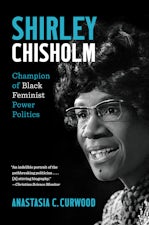A Nation for All
Race, Inequality, and Politics in Twentieth-Century Cuba
By Alejandro de la Fuente
464 pp., 6.125 x 9.25, 15 illus., 10 tables, notes, bibl., index
-
Paperback ISBN: 978-0-8078-4922-4
Published: April 2001 -
E-book EPUB ISBN: 978-0-8078-9876-5
Published: January 2011 -
E-book PDF ISBN: 979-8-8908-7213-5
Published: January 2011
Envisioning Cuba
Buy this Book
- Paperback $47.50
- E-Book $29.99
For Professors:
Free E-Exam Copies
Awards & distinctions
2003 Latin American-Caribbean Section Award, Southern Historical Association
Tracing the formation and reformulation of nationalist ideologies, government policies, and different forms of social and political mobilization in republican and postrevolutionary Cuba, Alejandro de la Fuente explores the opportunities and limitations that Afro-Cubans experienced in such areas as job access, education, and political representation. Challenging assumptions of both underlying racism and racial democracy, he contends that racism and antiracism coexisted within Cuban nationalism and, in turn, Cuban society. This coexistence has persisted to this day, despite significant efforts by the revolutionary government to improve the lot of the poor and build a nation that was truly for all.
About the Author
lejandro de la Fuente is associate professor of Latin American history at the University of Pittsburgh.
For more information about Alejandro de la Fuente, visit
the
Author
Page.
Reviews
"This is first-rate scholarship: judicious, sophisticated, and intellectually rewarding."--Historian
"An important and original contribution to the reassessment of race in Cuba."--Journal of Latin American Studies
"A long-awaited study on historical race relations in modern Cuba. . . . Recommended reading for those interested in the history, culture, and politics of Cuba."--Colonial Latin American Historical Review
"A highly ambitious study of the role of race in Cuban politics. . . . No monograph on Cuban history to date has placed race so squarely and fruitfully at the center of Cuba's twentieth-century history; and none has been able to combine so successfully, the way this book does, a sweeping political narrative with careful attention to detail, nuance, and contradiction. . . . Important and innovative. . . . A lasting contribution to the field of Cuban history, as well as to the contemporary study of the revolution and its uncertain future."--American Historical Review
"This is a thoughtful and systematic examination of the shifting meanings of race in the political process in Cuba. It takes the comparative study of citizenship in the twentieth century to a new level of subtlety and sophistication."--Rebecca J. Scott, University of Michigan
"Alejandro de la Fuente tells a powerful and intriguing story with a cool, even-handed detachment and the authority of prodigious research. By showing how racial ideologies and relations are implicated in revolutionary politics and nation formation, how economic and political forces interact to determine a given racial formation, and the diverse processes, pressure points, and stimuli for transformations in the social construction of race, this book makes a significant contribution to comparative race relations."--Thomas C. Holt, University of Chicago




